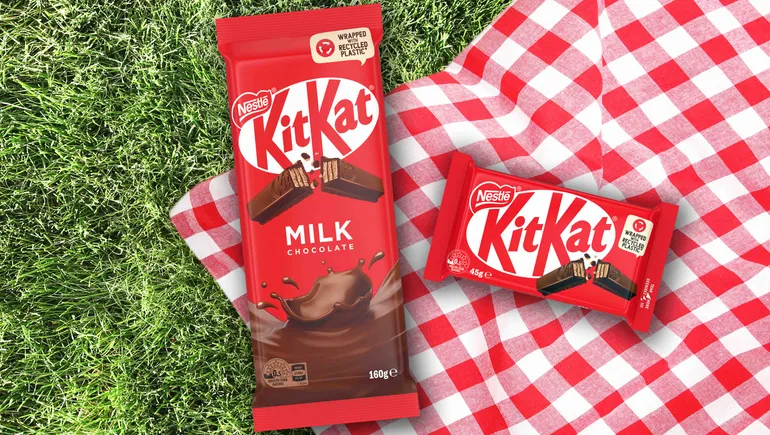Nestlé investors urge food giant to lessen dependence on unhealthy foods

Dive Brief:
- An investor group is urging Nestlé to increase the proportion of its sales coming from healthier products, citing regulatory, reputational and legal risks, as well as public health impacts tied to an overconsumption of unhealthy foods. The coalition claimed Nestlé gets 75% of its global sales from products containing high levels of salt, sugar and fat.
- Investors with $1.68 trillion in assets under management are supporting a resolution that would require Nestlé to increase sales from healthy products based on internationally accepted standards, according to investment non-profit ShareAction. The measure will be voted on at Nestlé’s annual meeting in April.
- Food manufacturers have come under pressure to improve the nutritional aspect of their portfolios as consumers look to eat healthier. Unhealthy diets have been tied to a host of illnesses including diabetes and heart disease. The World Obesity Organization estimates the economic impact of overweight and obesity will surpass $4 trillion by 2035.
Dive Insight:
Nestlé vowed last September to increase sales of more nutritious products by 50% by 2030.
But a coalition of investors, led by ShareAction, said the commitment fell “far short” of investor expectations in improving public health. The group noted, for example, that the pledge included products such as coffee, which ShareAction said has no nutritional value, and baby food. It said Nestlé could more easily achieve its goal by selling more of these products.
Maria Larsson Ortino, senior global ESG manager at Legal & General Investment Management, one of the shareholders, said that since Nestlé published its target, there have been discussions with the company that have reached an impasse. She also said Nestlé has failed to establish specific targets to increase sales from products that meet healthy thresholds.
“We therefore deemed the next appropriate step to be to co-file this shareholder proposal,” Larsson Ortino said, “We want to press home to the Company, and to the food and beverage sector as a whole, the importance we place on nutrition.”
For the measure to pass, Bloomberg said at least 50% plus one vote of the registered share capital represented at the annual meeting in April would need to support the measure.
Nestlé estimated in its 2023 annual report that 38% of its net sales, excluding pet care and specialized nutrition, came from products that are considered “healthy,” according to a widely used ranking platform known as the Health Star Rating system. The figure is up 1 percentage point from 2022. To achieve its 2030 goal, Nestlé said it will spend “significantly” to renovate existing products and spur innovation
In a statement to Food Dive, Nestlé said it would have to “agree to disagree” with ShareAction and it disputed the claim that 75% of its sales come from unhealthy products. The Switzerland-based company said it was the first food and beverage firm to provide transparency on the nutritional value of its entire portfolio against a government-endorsed nutrient model.
Nestlé also disagreed with the assertion that products such as plain coffee or vitamins, minerals and supplements should be excluded because they are “part of our portfolio and consumed by people on a daily basis.” It added that it has been working for decades to make its portfolio healthier and that “more would be accomplished by asking other firms to level up.”
“ShareAction is targeting the wrong company. … While we take note of ShareAction’s perspective, we disagree with the notion that we should aim to limit growth in specific areas of our portfolio,” Nestlé wrote. “A proportional target would require us to weaken valuable parts of our portfolio and create opportunities for competitors without yielding public health benefits.”
Source: fooddive.com

